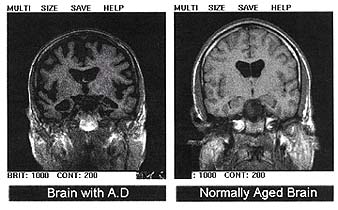It's estimated that there'll be a million people with dementia in the UK by 2025. But despite the rise of a disease which currently costs Britain an estimated £23 billion a year we still don't really understand what causes it.
But despite the rise of a disease which currently costs Britain an estimated £23 billion a year we still don't really understand what causes it.
This week however, a team of researchers led by Molly Fox at the Division of Biological Anthropology at Cambridge University have been looking into one puzzling aspect of Alzheimer's, why do developed countries have much higher rates of the disease than developing countries?
You might imagine that those in developed countries simply live longer - the proportion of people with dementia doubles for every five year age group. But, even if you account of the differences in age, Europe has a far higher rate of the disease than South America, India or China.
So why do developed countries have this higher rate? If you take a look at the brain of someone with Alzheimer's, you find plaques and tangles of Tau proteins as well as chronic inflammation, or swelling. This swelling is similar to the inflammation found as a result of auto immune diseases - where the body's own immune system attacks it. We know that people are more protected from these auto immune diseases if they are exposed to a greater number of pathogens, bacteria and viruses during their lifetime, which is more likely in developing countries where sanitation and water supplies might be less developed. So the researchers wondered, could the same be true for Alzheimer's?
Fox and her team compared age-standardized years lost to death and disability as a result of Alzheimer's in 192 countries with their pathogen prevalence, calculated by looking at areas such as sanitation and water supplies. They found that there was a highly significant relationship between the hygiene indicators and the level of Alzheimer's. While this correlation cannot be proved to be causal the team hope that it might help to prepare developing countries for potentially higher rates of Alzheimer's as hygiene conditions improve.










Comments
Add a comment